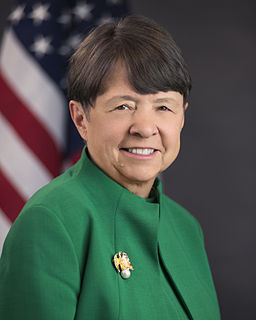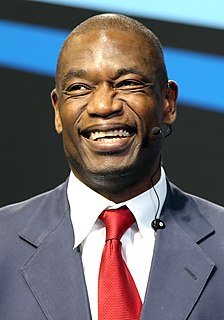A Quote by Park Yeon-mi
I was born at the end of the 1993. The regime stopped giving food to the people. Three million people died from 1995 to 1998. It's one of the world's worst man-made famines in history.
Related Quotes
History is but the record of the public and official acts of human beings. It is our object, therefore, to humanize our history and deal with people past and present; people who ate and possibly drank; people who were born, flourished and died; not grave tragedians, posing perpetually for their photographs.
There are African leaders who have the dangerous habit of leading their people into an abyss. In Rwanda we've had presidents who killed. The one million people who died here were, to a certain extent, victims of their leader, President Juvénal Habyarimana, who died in a plane crash before the genocide began. He contributed to all that. The man who took over from him was running around ordering people to kill. If this president came back and landed in my hands, I would have him arrested and tried. Unfortunately, he died a natural death.
I think a repressive regime always fears people who are awakened - particularly ordinary people. If they are awakened, I think governments all over the world feel uncomfortable about that; they want to be in control. They want to be the ones telling people: "This is what we have done in history" but when people begin to say, "No this is what we have done in history" it's a different thing.
Iran is a country that talks about, denies the Holocaust, promises to wipe out Israel, is engaged in terror throughout the world. This is a regime that is giving vent to the worst impulses that you see right now in the Middle East. They deny the rights of women, deny democracy, brutalize their own people, don't give freedom of religion.
As Churchill said about the Great War, and he said this in about 1924, that it was the first war in which man realized that he could obliterate himself completely. If you consider the way the whole world was impacted, 18 million people worldwide died, and that is taking into account military and civilian deaths: 18 million people. And it was the whole world, if you will. You know, many of those trenches were dug by Chinese. There are photographs of Chinese looking like they just came from China, with their hats and so on, digging the trenches, right from the beginning.
The world should have stopped, but it didn't. The world kept on going. How can the world just keep on going? An earthquake in India kills a thousand people, and the world keeps on going. A famine in China kills a million people, and the world keeps on going. The twin towers of the World Trade Center buckle and fall, and the world, the world keeps on going.






































